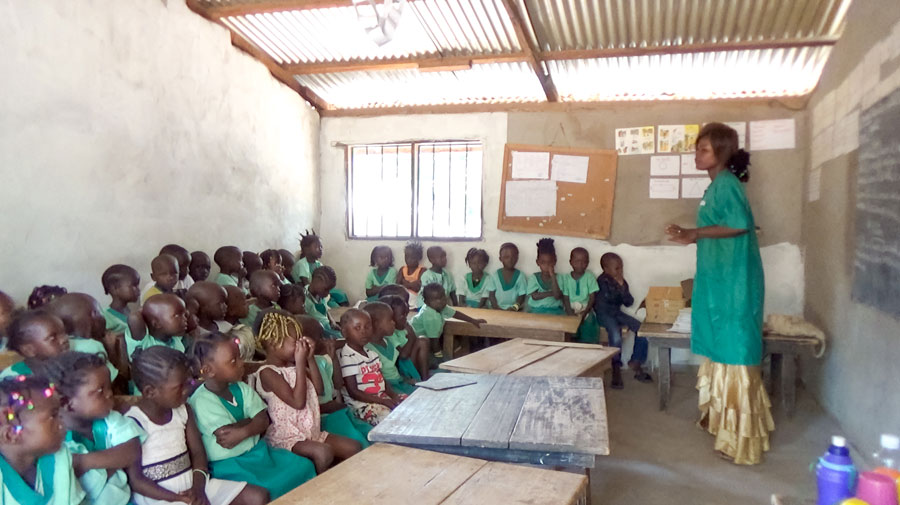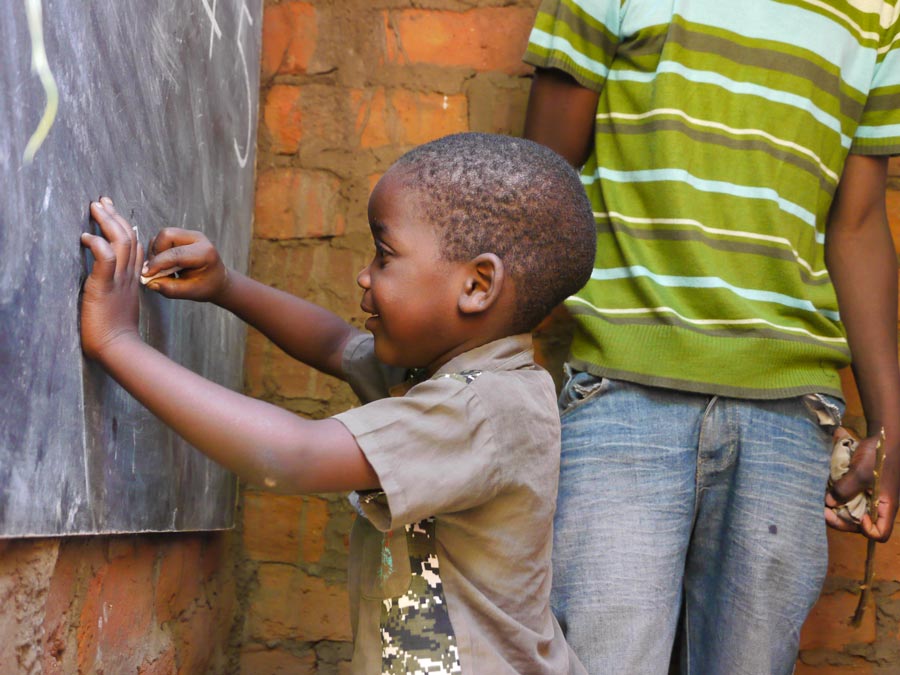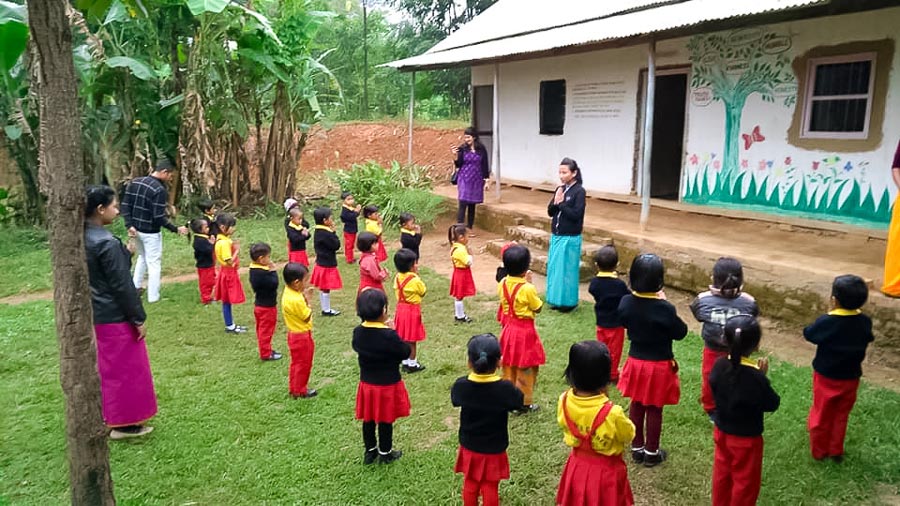Limited web accessibility in certain regions of the world has not prevented some educators from continuing with formal schooling during the pandemic.
Baha’i-inspired community schools in such places have found creative ways of adapting to present circumstances and serving their students’ educational needs.
“These schools are born from the desire of local people—parents and teachers—to provide a high standard of education to children, integrating academic and spiritual elements and raising them to contribute to the progress of their society,” says Judicaël Mokolé of Fondation Nahid et Hushang Ahdieh, which supports community schools in the Central African Republic. “They are intimately linked to the life of the community and have been important institutions for helping people through these circumstances.”

Clément Feizouré, director of the Baha’i-inspired organization, adds, “The community feels that the school is theirs. Our organization helps with developing capacity for teaching and administration, but community members have ownership over the school’s management, resources, and educational program. They have continued to uphold this responsibility during these disruptive times.”
Classes are now being held in the homes of parents with a limited number of children, as permitted within the current health measures in the country. Additional volunteer teachers are being trained to ensure that each small group of families has someone who can help the students with their writing, reading, and arithmetic activities, along with lessons on spiritual themes.
“The approach of decentralized schools is opening unexpected doors,” says Mr. Mokolé. “This has given us the possibility to help parents increase their understanding of educational principles and skills, which is precious because the home is the primary locale for the education of children.”

A Baha’i principle underlying these schools is that local communities can be protagonists in the education of their children. With such a sense of ownership, communities have been committed to sustaining educational programs during the pandemic while adhering to safety measures put in place by their governments.
In Indonesia, where in-person lessons have had to be suspended, teachers of community schools have been going to the homes of their students to drop off and pickup homework assignments.
In other places, families have pooled their resources to assist teachers so that community schools could continue to operate during this time of economic difficulty. In Malawi, for example, parents have been providing teachers with produce from their farms. Some families have been working the teachers’ plots while they are occupied with their classes.
“Since it is the parents in the community who have chosen the individuals who serve as teachers of their children, trust has existed between them from the beginning” says Andrew Nhlane, national coordinator of community schools with the Bambino Foundation in Malawi. “That’s why, in the current situation, they wish to continue supporting the teachers.”

In Kalchini, West Bengal, India, the relationships of trust built between parents and teachers of such schools also extend beyond activities in the classroom. When an organization was searching for volunteers in the village to distribute food supplies, residents asked that the community school teachers assist, saying they would distribute the supplies with fairness.
In another region of the country, Machasana Koijam, who works with a community school in Langathel, Manipur, says:
“The Baha’i teachings tell us that one of the greatest services we can offer is the education of children. Parents know the sacrifices the teachers are making, especially now, to educate their children in the sciences as well as in spiritual matters so that they can develop a good character and be a light to the world.”
















Comments
Sign in or create an account
Continue with Googleor